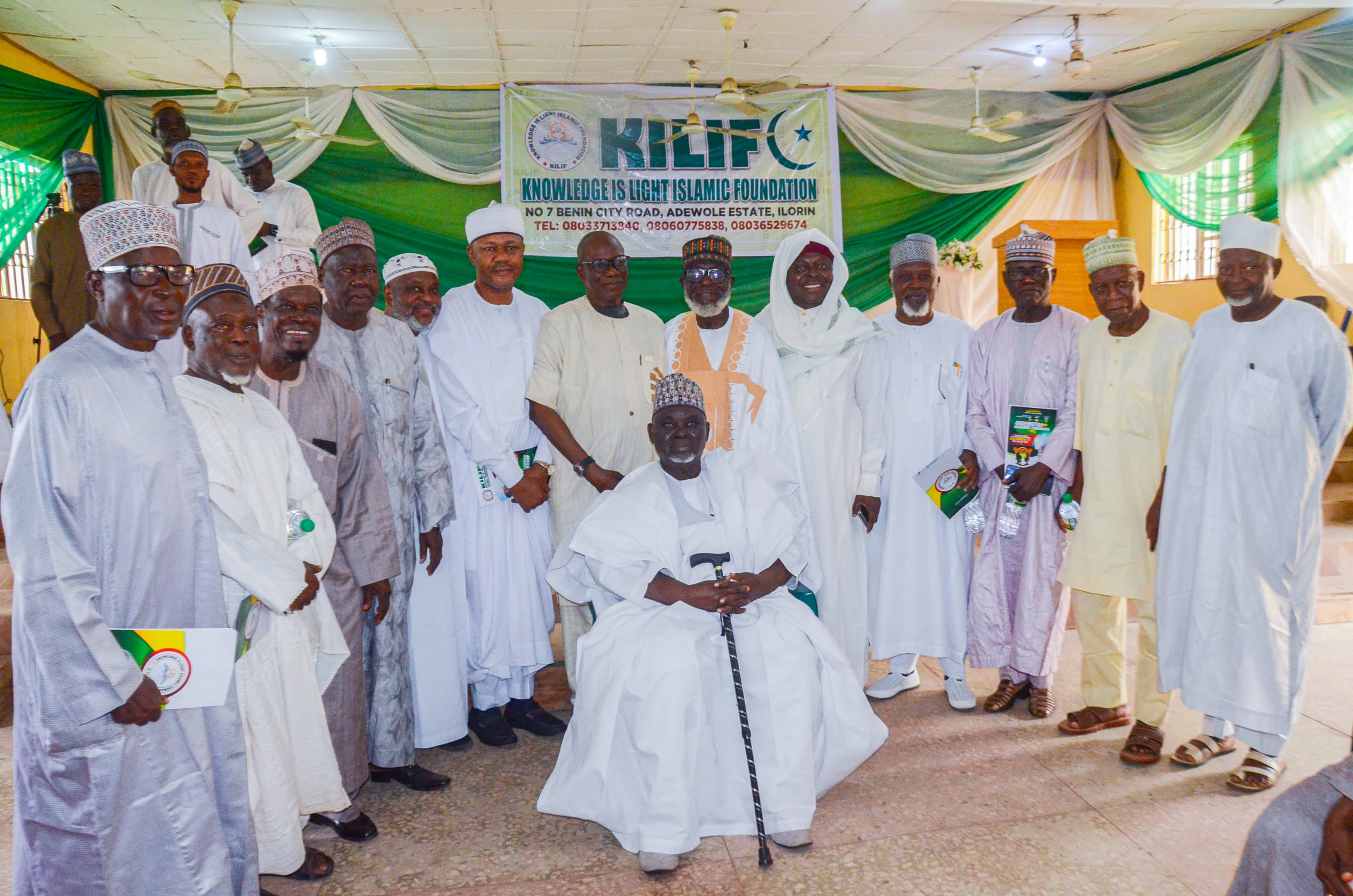
Retired Grand Kadi of Kwara State Sharia Court of Appeal, Justice Salihu Olohuntoyin Muhammad, has attributed the failure of leadership to poor selection process.
He said this has accounted for embezzlement, injustice and self centeredness being experienced in the society.
Muhammad, who spoke through a Kadi in the State Sharia Court of Appeal, Justice Masu’d Adebayo Oniye, stated this at the maiden lecture of Knowledge Is Light Islamic Foundation (KILIF) held in Ilorin yesterday.
The lecture was themed “Responsible Leadership and Followership”.
Speaking at the event that had in attendance incumbent Grand Kadi of the State, Justice Abdullateef Kamaldeen; former Secretary to the State Government, Alhaji Shehu Gafar, the retired jurist identified the adverse effects of recruiting irresponsible leaders as collapse of institutions and rise in crimes among others.
“One of the things that make a leader to be irresponsible or that account for poor leadership is lack of fear of God. ..failure of leadership is usually a product of among others, poor system of selection or election, poor planning, diversion and misappropriation of public or common resources, embezzlement, injustice, favouritism, self centeredness, tribalism/racism and of course the bane of all, corruption (in all its facets and ramifications).
“While the effects or consequence of a leader not being responsible are not exhaustive and can include breakdown of law and order, indiscipline (in the private and public), lack of security, hunger, serious health challenges, collapse of institutions, no more sympathy, empathy and care for others, killing, brigandage, rampancy in commission of crime, usurpation of others’ property and wealth, immorality,” the lecturer said.
The retired jurist was of the view that governance and religion are inseparable contrary to the belief in some quarters that the latter and governance are poles apart.
He stated that a leader, who is more knowledgeable in his religion, would be rightly guided while administering the affairs of his people and become conscious of the hereafter in his undertakings.
The jurist said, “We tend to separate governance from religion but it goes beyond that in Islam because whatever you do as a leader, you will account for it in the hereafter. If you must be a leader, you must do your duty in a way that you are serving Allah.
“Leadership is about trust. A leader is accountable to the led and Allah, and whoever is ready to serve wholeheartedly is a responsible leader.
“A lot of leaders have lost focus; they don’t see themselves as people’s representatives. A leader must be intelligent, truthful, compassionate, knowledgeable and be ready to accept mistakes if any.
“A leader must have listening ears, take decisions after consultation. We must understand that greater burden is on a leader but that does not mean that followers do not have their duties.”
The state Grand Kadi, Justice Abdullateef Kamaldeen, noted that the theme of the lecture was timely and relevant not just for the immediate society but the whole world, adding that “it inspired us on the role of leadership and followership.”
Also speaking, the Chairman, Board of Trustees of KILIF, Architect Mohammed Faworaja, said the foundation was established to propagate knowledge and inspire good leadership.
He disclosed that the foundation would be convening lecture during Ramadan with knowledgeable Islamic scholars while four public lectures would be organized every year.
The elder statesman thanked members of the group for their support.
“Five years ago, some friends came together to form this foundation. We are very conscious and want the foundation to be around for sometime. We have people of lower ages who are participating in KILIF.
“There is a plan to bring in our women because there is a lot for them to learn. Like I said, our foundation has been in existence for the past five years, serving as knowledge given forum. Our foundation is open to anybody. The issue of knowledge is highly emphasized in Islam, having it makes you tower above everything. In recent times, we observed that adherents are being misled contrary to what is in Qur’an and Sunnah. This is what we are trying to correct,” Faworaja said.

